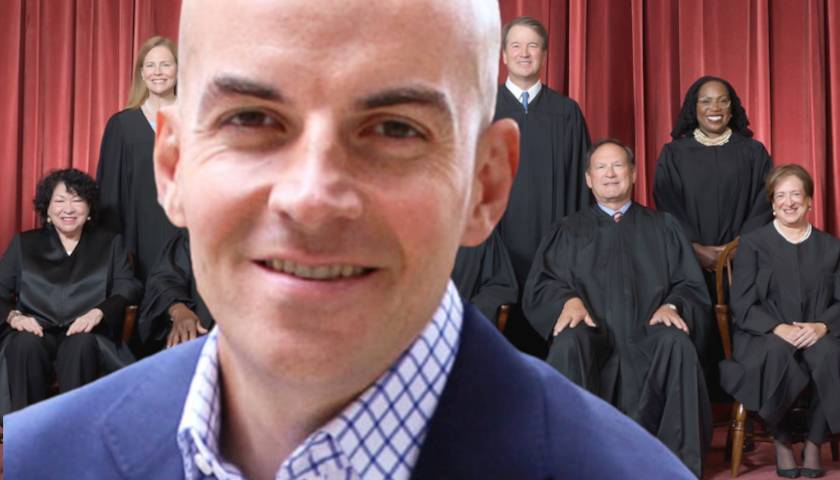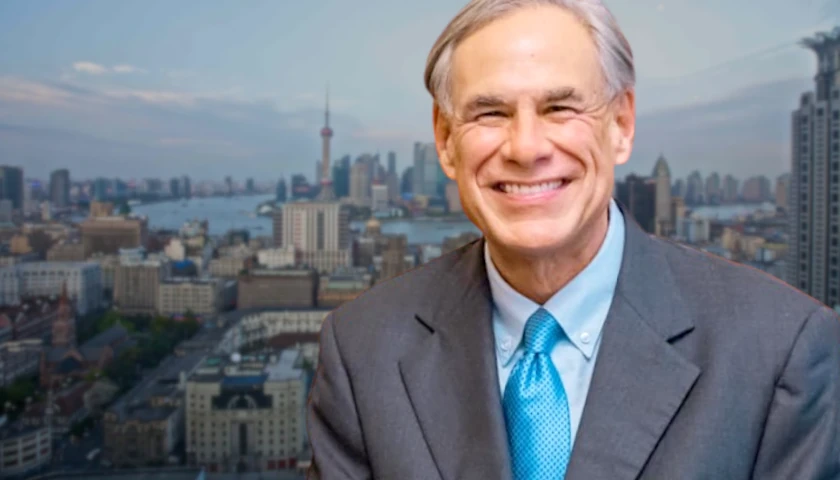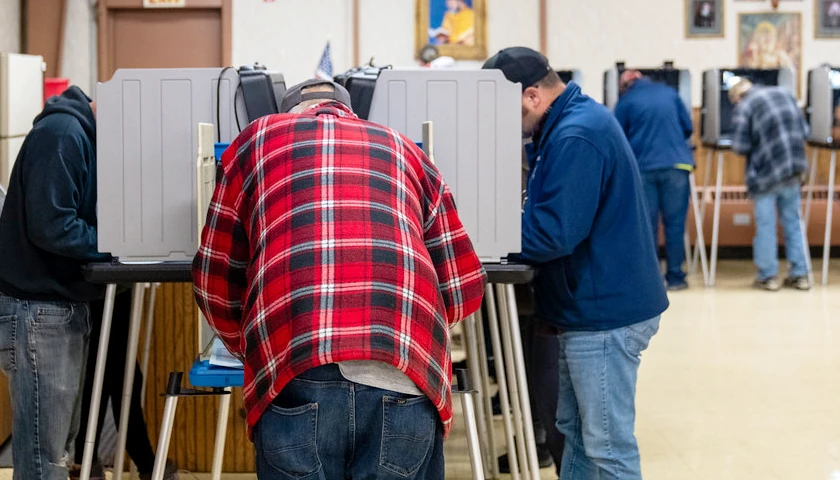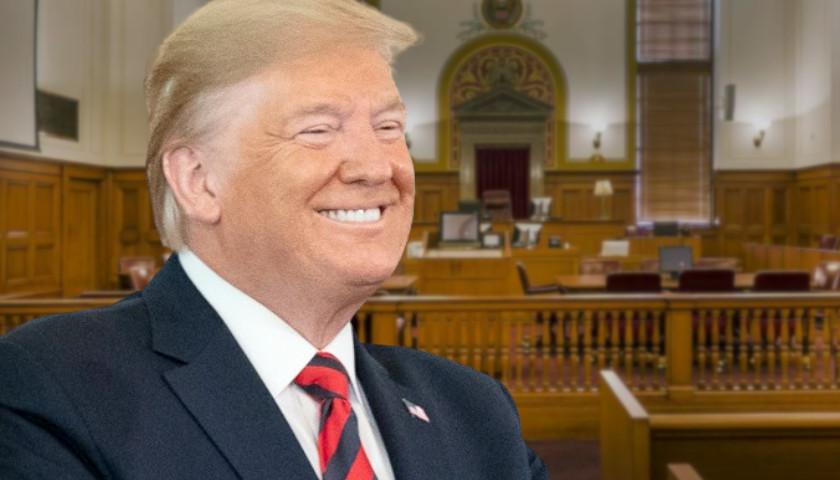by
Federal officials privately scold reporters and attempt to shape or even stop their coverage on a regular basis, without getting sued for First Amendment violations.
How close is that to White House aides privately and repeatedly badgering their counterparts at social media companies and President Biden publicly accusing Facebook of “killing people,” for insufficient censorship of disfavored narratives on COVID-19?
Supreme Court justices grasped for apt analogies in oral argument Monday in what is likely the most consequential First Amendment case of the century, pitting federal officials against Missouri and Louisiana attorneys general, censored doctors and activists.
Their back-and-forth with each side suggests the high court will at least reduce the scope of the 5th U.S. Circuit Court of Appeals’ preliminary injunction instructing certain feds – but not Biden – they “cannot coerce or significantly encourage a platform’s content-moderation decisions” even if “threats of adverse consequences … are not verbalized and never materialize.”
On Monday 3/18, the Supreme Court will hear our 1st amendment case on whether the government may pressure social media to censor content they don't like. Discussion with co-plaintiff @jimhoft_ https://t.co/CUYIjcE1gO
— Martin Kulldorff (@MartinKulldorff) March 16, 2024
That ruling itself substantially narrowed U.S. District Judge Terry Doughty’s injunction in both covered officials and conduct. SCOTUS held them from taking effect.
The high court could avoid a decisive ruling by simply finding none of the plaintiffs suffered concrete injury or at least aren’t likely to do so again.
“If even one of the plaintiffs has standing, then we’re required to get to the merits” of the case, Justice Samuel Alito reminded colleagues.
Alito and Louisiana Solicitor General Benjamin Aguiñaga identified the most likely plaintiff to reach that bar as Health Freedom Louisiana leader Jill Hines, pointing to Facebook’s restrictions on her account when the suit was filed.
Judge Doughty found her injury was traceable to the government, the 5th Circuit agreed, and “we don’t usually reverse findings of fact” by two lower courts, Alito said.
Justice Department Principal Deputy Solicitor General Brian Fletcher objected that both courts improperly used a “bird’s eye view of traceability” that conflates any moderation with government action.
"There was a concern that Americans were getting their news about the vaccine from these platforms, and the platforms were promoting… 𝙗𝙖𝙙 𝙞𝙣𝙛𝙤𝙧𝙢𝙖𝙩𝙞𝙤𝙣."
The U.S. Principal Deputy Solicitor General arguing on behalf of the government.
Yikes. pic.twitter.com/HIoh64qDcQ
— Rep. Dan Bishop (@RepDanBishop) March 18, 2024
“I’m not sure how we get to prove direct injury in any way,” Justice Sonia Sotomayor said while accusing Aguiñaga of sloppiness and bad faith in his brief.
“You omit information that changes the context of some of your claims” and wrongly attributed at least one event, she said.
Assuming they address the merits, Chief Justice John Roberts and Justices Brett Kavanaugh and Amy Coney Barrett appear most likely to join the three Democratic appointees in permitting some level of federal pressure to suppress purported misinformation and disinformation.
Roberts asked Fletcher how the court is supposed to evaluate when “coercion kicks in,” such as if the White House said “we’re going to move your reporter’s cubicle down the hall” if the publication doesn’t back down.
Reporters might not be intimidated by a press secretary who “yells on a regular basis,” but if “their volume increases enough, that might be viewed as coercion,” Roberts said.
“These were sophisticated parties,” Fletcher answered, referring to social media platforms. “They routinely said no to the government” and suffered no consequences.
Aguiñaga repeatedly asked the justices not to lose the forest for the trees by getting hung up on possible differences between the words “persuade,” “coerce” and “significantly encourage.”
“Imagine being on the receiving end of Rob Flaherty for six months,” he said, referring to the former White House deputy assistant’s sometimes-profane marching orders to platforms.
Rob Flaherty tells facebook to censor @tuckercarlson pic.twitter.com/mxUT2C8nna
— Attorney General Liz Murrill (@AGLizMurrill) January 6, 2023
Aguiñaga said one of the “hottest docs” obtained in litigation is Facebook President for Global Affairs Nick Clegg telling Surgeon General Vivek Murthy, in response to escalating pressure to expand censorship, how exactly the platform was adjusting its policies to limit the spread of the “Disinformation Dozen” that includes presidential candidate Robert F. Kennedy Jr.
SCOTUS precedent prohibits any level of government encouragement for “private persons to accomplish what it is constitutionally forbidden to accomplish,” Aguiñaga said, quoting the outsourced discrimination ruling Norwood.
“Just plain vanilla encouragement?” Justice Barrett incredulously responded, asking whether Aguiñaga would stop the FBI from encouraging platforms to take down posts that dox, or publish private information about, Louisiana officials. “Do you know how often the FBI makes these calls?”
On the other side, Justice Alito could carry a bare majority by emphasizing the factual record shows federal officials went much further with social media than their routine bickering with journalists, and had “big clubs” to compel compliance.
The feds argued they “should be partners” with platforms, “demanding answers … right away” and “curs[ing] them out” when the platforms make the feds “unhappy,” Alito told DOJ’s Fletcher, alluding to Flaherty.
“There is constant pestering,” recurring suggestions for “rules that should be applied” and requests to learn “everything that you’re going to do” against the wrong posts, particularly involving Facebook, Alito said.
Oral argument before #SCOTUS in Murthy v. Missouri starts soon.
Our client @AaronKheriatyMD has prepared a list of the censored doctors and scientists: @DrJBhattacharya, @MartinKulldorff, @TracyBethHoeg, @AzadehKhatibi.
We will stop the Censorship Industrial Complex together. pic.twitter.com/bbfWL5Cmxc
— New Civil Liberties Alliance (@NCLAlegal) March 18, 2024
“And I thought, ‘Wow, I cannot imagine federal officials taking that approach to the print media,'” Alito said. The “only reason” is the government has “Section 230 [liability reform threats] and antitrust [enforcement] in its pocket,” so it treats “Facebook and these other platforms like they’re subordinates.”
Government officials cursing out reporters “may be commonplace,” Fletcher responded. “I’m not saying it’s a good thing,” just that “the First Amendment isn’t a civility code.”
Justice Elena Kagan said she’s had “some experience encouraging press to suppress their own speech,” while Roberts got laughs by emphasizing “I have no experience coercing anybody.”
Justices Kavanaugh and Neil Gorsuch secured concessions from Fletcher that threats of antitrust action to compel compliance would constitute coercion.
Gorsuch asked whether the same applies if the feds threaten to “change our position on Section 230” or accuse platforms of “killing people.” The latter was an “off the cuff” statement that President Biden “clarified” three days later, an “exhortation, not a threat,” Fletcher retorted.
Section 230 refers to a part of the 1996 Telecommunications Act that generally provides immunity to online computer services with regard to third-party content on their sites.
Justice Ketanji Brown Jackson prodded Fletcher to revisit his statement suggesting that coercion inherently violates the First Amendment.
https://twitter.com/JonathanTurley/status/1769733054547771648?ref_src=twsrc%5Etfw%7Ctwcamp%5Etweetembed%7Ctwterm%5E1769733054547771648%7Ctwgr%5E4396050ae0746b1ff514ff4b89ecf4214cb6c2f9%7Ctwcon%5Es1_&ref_url=https%3A%2F%2Fjustthenews.com%2Fgovernment%2Fcourts-law%2Fwhite-house-pressure-censor-social-media-no-worse-yelling-journalists-scotus
The court has required “heightened scrutiny of government restrictions of speech but not necessarily a total prohibition,” such as when ensuring “the public has accurate information in the context of a once-in-a-lifetime pandemic,” Jackson said.
Fletcher clarified he was arguing “there wasn’t any coercion to begin with.”
In the name of a “public health emergency,” the newest justice similarly prodded Louisiana’s Aguiñaga to agree the government could encourage social media to interrupt a hypothetical “teen challenge” in which adolescents jump out of windows “at increasing elevations.”
The government can inform platforms of the problem, but not “use its ability … and its stature as the government to pressure them to take it down,” Aguiñaga said. He urged justices to remember “the third party whose speech is being targeted and ultimately censored is absent from this discussion.”
– – –



